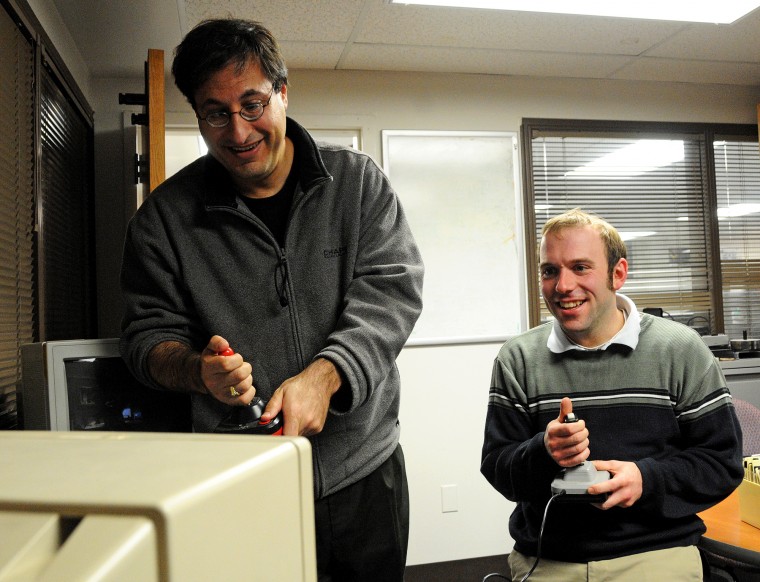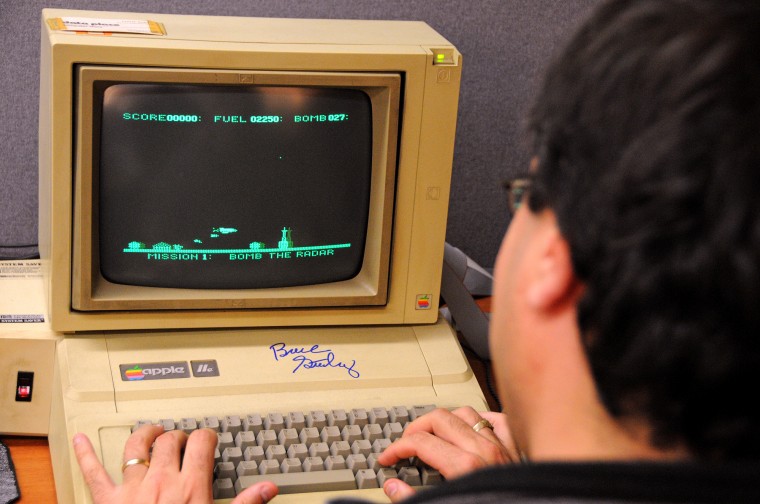Frogger may face greater risks than leaping into oncoming traffic, and Pong could meet a worse fate than bouncing off of the screen into TV oblivion. For these and many other classic video games, it could very well be “Game Over.”
Doug Reside and English professor Matt Kirschenbaum, who are the associate directors of the Maryland Institute for Technology in the Humanities, are working to preserve video games as they become obsolete in an ever-changing technological world.
The two have joined up with researchers from Stanford University, the University of Illinois at Urbana-Champaign and the Rochester Institute of Technology in a project funded by the Library of Congress to find a way to save these pop culture artifacts from the march of time. Ultimately, Kirschenbaum said, he wants people to be able to track down an original version of Pong or Frogger in a few decades.
“If I want to teach a novel that’s hundreds of years old, it’s not a problem — I can assign them a book. But if somebody 50 years from now wants to show their students where computer games came from, they’ll have a much harder time doing it,” Kirschenbaum said.
The two-year-old project will concentrate on preserving vintage games such as Star Raiders, an Atari spaceship shooting game; Doom, one of the original first-person shooting games; and Second Life, a life-simulation game. They chose these games for their historical significance and will work on several versions of each one.
The team will create copies of authentic video games to make them compatible with modern computers so they can be used even when their respective consoles have become obsolete.
Since video games span from the arcade games of the 1970s and ’80s to the Game Boys and Nintendo 64s of the ’90s to the iPhones and Wiis of the 21st century, Kirschenbaum and Reside emphasized that the project is also important from a nostalgic standpoint.
“The project has touched a nerve in a good way,” Kirschenbaum said. “There are a lot of people who care a lot about computer games and are interested in what’s being done to make sure they won’t just evaporate.”
For Reside, his first video game memory is playing an Atari 2600 version of Donkey Kong.
“I was never allowed to play in the pizza parlor because you needed a quarter, but my grandparents had an Atari 2600, so I could play for free even though the game was way different,” Reside said.
Reside also said he thought the archiving of old video games could serve as a resource and point of reference for those developing new video games today.
“Today in creative writing classes, you would write a lot but also read a lot, so that you will understand what works came before you,” Reside said. “For that reason, it’s important to know that future game developers are aware of the history that came before them so they can place themselves in the canon of video game history.”
farrell at umdbk dot com
English professor Matthew G Kirschenbaum, left, and Associate Director for the Maryland Institute for Technology Doug Reside, right, are collecting old video games thanks to a grant from the Library of Congress.
English Professor Matthew G Kirschenbaum, associate director of the Maryland Institute of Technologies in Humanities, has been collecting outdated video games for the past 2 years.





